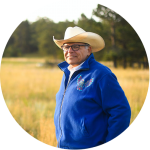
Centers for American Indian and Alaska Native Health
Colorado School of Public Health
Distinguished Professor of Public Health and Psychiatry, Colorado Trust Chair in American Indian Health, Director
Presentation Abstract
Bridging Healthcare Gaps in Culture and Geography Through Telehealth: Lessons from Tribal Communities
American Indian and Alaska Native healthcare organizations had already begun to grapple with many of the challenges which became only recently evident to the country at large as it turned to telehealth to address constraints on healthcare access imposed by the COVID-19 pandemic. These challenges included awareness of intervention options and attendant barriers to their adoption, lack of empirical evidence regarding clinical and cost effectiveness, technical demands, limited workforce capacity, poor interoperability of electronic health records, differences in organizational policies, and uncertain financing. This presentation highlights promising practices and organizational models that emerged from tribal experiences, with careful attention to implications for other isolated, underserved communities, Native or otherwise. It closes by suggesting future research questions, answers to which can shed important insights into the processes, structures, and resources required to bridge gaps in culture and geography that currently limit the reality of telehealth in rural America.
About Dr. Manson
Dr. Spero M. Manson (Pembina Chippewa), is the Distinguished Professor of Public Health and Psychiatry, directs the Centers for American Indian and Alaska Native Health, and occupies the Colorado Trust Chair in American Indian Health within the Colorado School of Public Health at the University of Colorado Denver’s Anschutz Medical Center. His programs include 10 national centers, which pursue research, program development, training, and collaboration with 225 Native communities, spanning rural, reservation, urban, and village settings across the country. Dr. Manson has acquired $268 million in sponsored research to support this work and published 280 articles on the assessment, epidemiology, treatment, and prevention of physical, alcohol, drug, and mental health problems over the developmental life span of Native people. His numerous awards include the American Public Health Association’s Rema Lapouse Mental Health Epidemiology Award (1998) and Award for Lifetime Contribution to the Field of Mental Health (2019); four special recognition awards from the Indian Health Service (1985, 1996, 2004, 2011); election to the National Academy of Medicine (2002); two Distinguished Mentor Awards from the General Services Administration (2006, 2007); Association of American Medical Colleges Nickens Award (2006); George Foster Award for Excellence (2006) and Career Achievement Award (2020) from the Society for Medical Anthropology; National Institutes of Health Health Disparities Award for Excellence (2008); Bronislaw Malinowski Award from the Society for Applied Anthropology (2019); and the Centers for Disease Control and Prevention Foundation’s Elizabeth Fries Health Education Award (2021). He is widely acknowledged as one of the nation’s leading authorities in regard to Indian and Native health.
Dr. Manson did not disclose any conflicts of interest for this workshop.